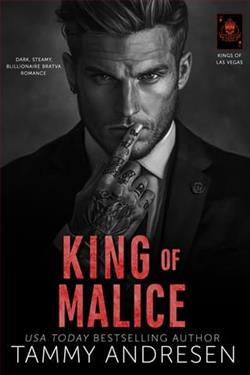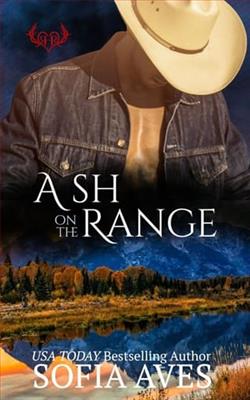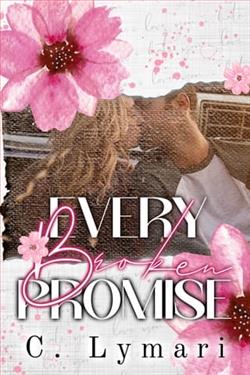Page 11 of Euphoria
6
Mr. Rochester didn’t sendfor me straight away.
Perhaps it was his way of making me stew in my own juices while I waited for his axe to fall. All day, I wondered where I would go once I left Thornfield and where I would find work. It seemed a harsh change of mind from the previous day’s depression.
I’d wanted excitement, but ultimately, not to leave this place. For the first time in my twenty-seven years, I’d found real friends among the staff here, despite the quiet solitude the hotel exuded. My wandering soul had stilled and was floating calmly in the sea of existence.
Mr. Rochester’s stormy eyes haunted me the entire day, through the afternoon, and early evening. I’d been hoping he’d forgotten me when Alice informed me I’d been summoned to appear before the master. For that was how he’d conducted himself. He was absolute.
Alice guided me upstairs to the third floor and opened a door just past the library. Inside revealed a grand study, its decor matching that of the refuge I’d found next door. Well, a refuge that seemed to be mine no more.
A grand fireplace sat to one side, its hearth full with a roaring fire, and a leather couch and armchairs sat before it. Paintings and tapestries adorned the walls while rugs covered the floor. More bookshelves lined the other wall, and a large chestnut desk with a green leather top stood in the center of it all. Large windows with forest green curtains completed the picture of seventeenth century masculinity, and I felt entirely out of place.
Alice offered me a reassuring smile as she closed the door behind me, and I was left alone with the master.
Mr. Rochester sat half reclined on a couch, his foot supported by a footstool. He was looking at a folder of papers in his hands, the firelight shining full on his face, and my heart twisted at the sight if him. Not because he was young and handsome but because I’d seen his face before.
The man from the road and the library was Mr. Rochester! I knew him without a doubt, his broad shoulders, rough jaw, and harsh brow etched into my mind as clear and crisp as Waterford Crystal. Knowing how I’d argued with him without shame, I felt as if the ground would swallow me whole.
He must have been aware of my entrance, but his gaze didn’t move from the papers in his hands. Perhaps he was not in the mood for civilities knowing it was me who would stand at his feet. After all, he had summoned me by name.
Finally, he shifted his eyes to me, and they were full of a grimness that made me pale. Though I had lamented at the stagnation I’d found at Thornfield, I was not yet ready to move on.
“Come,” Mr. Rochester said, staring at me with his otherworldly eyes. “You look ill. Sit before you faint.”
I hadn’t noticed if he had a limp the night before, and my eye lingered on his ankle.
“Miss Doe,” he said, the command clear in his rough voice.
I lowered myself onto the armchair opposite, folding my hands into my lap. My eyes fell to the carpet, studying the pile with intensity. I would look anywhere but at Mr. Rochester.
“This is your work?” he asked, throwing the papers on the table.
Seeing it was a copy of my proposal for the artist retreat, I was offended at the callousness of his dismissal, but I didn’t show it. “Yes, sir.”
“You have a keen mind, Miss Doe?” He posed it as a question, and I hesitated. “Speak, Miss. You have a tongue in that head of yours. The viper lashed me without any hindrance last night, or were you possessed by some spirit which has hence departed?”
“I was not,” I declared, my gaze meeting his.
“There,” he said with a condescending smirk. “She has eyes.”
He remained silent, sitting as if he were a statue, and I was unsure if it was my turn to speak. The teachers at Lowood had drilled into my very soul that I was not to speak until directed to do so, and it was a habit that had lingered in my later years, so I remained tight lipped.
After an awkward amount of time, he finally deigned to ask me a question. “You have been at Thornfield for two months?”
“Yes.”
“And where did you come from?”
“Prior to Thornfield, I worked in various hotels, restaurants, and bars across the country.”
“Lowly work,” he said with distaste. “Where did you come from before that? Where were you educated?”
“I studied business by correspondence,” I explained, giving the man what he wished. “Before that, I was a student at Lowood.”
“Lowood? The reform school?” He said this with an air of surprise, for I hardly acted like I’d been a problem child, though I looked like one, and truthfully I hadn’t been as such. I was more a burden my aunt did not want to deal with, and Lowood was a cruelty she could bestow upon me in lieu of effort on her behalf.
“How long were you there?”















